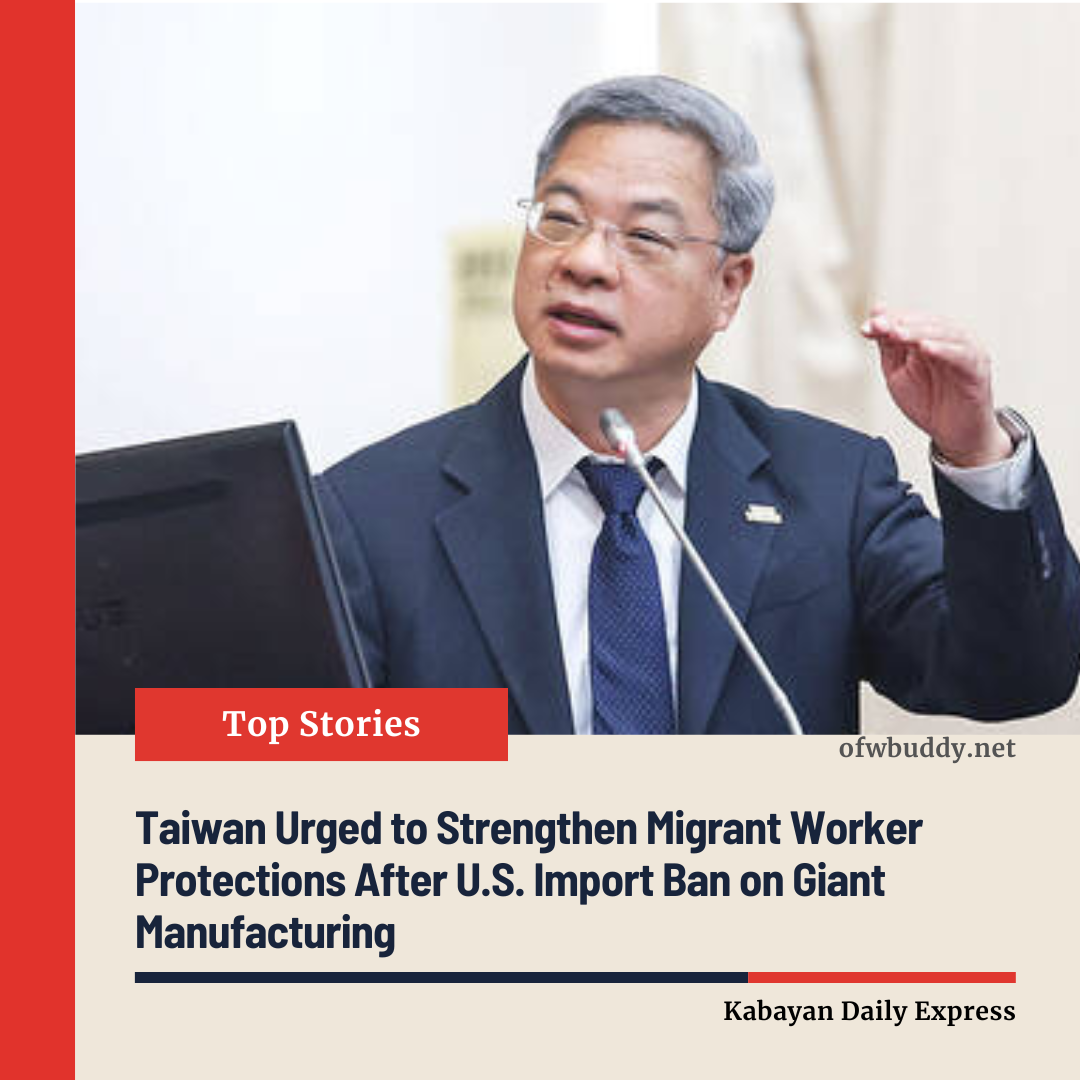Taiwanese scholars are calling for stronger protections for lower-wage migrant workers as Taiwan strives for recognition as a developed country, following the recent U.S. suspension of imports from Giant Manufacturing Co. over allegations of forced labor.
Chen Li-yi (陳立儀), assistant professor at the Department of Labor and Human Resources at Chinese Culture University, said in an interview with CNA that if Taiwan considers itself a developed nation, “it must ensure the protection of migrant workers’ human rights.”
The U.S. Customs and Border Protection (CBP) issued a withhold release order (WRO) in September against Giant, aiming to push Taiwan’s top bicycle maker to improve labor conditions and set an example for other employers.
Chen explained that Taiwan’s system of managing migrant labor remains largely government-to-government, in contrast to more developed economies where employment is established through direct contracts between private companies and workers. He also pointed out that the experience of Taiwan Semiconductor Manufacturing Co. (TSMC) in setting up factories in the U.S. highlights the influence of cultural differences on labor practices — noting, “Taiwanese workers think paying overtime to speed up work is normal, while American workers value their holidays and rest.”
Lin Chun-yu (林君諭), assistant professor at the Department of Social Work at Soochow University, said that while industrial migrant workers in Taiwan enjoy better protections than those in caregiving or fisheries, there remains “room for progress.” She added that many migrant workers still pay high brokerage fees in their home countries, a burden that could be eliminated under fairer recruitment systems.
In response to the U.S. order, Giant Manufacturing denied all allegations, asserting that it “absolutely has no debt-bonded labor” and “has never abused the disadvantaged status of migrant workers.” The company said it pays wages promptly, provides bilingual payslips, ensures legally compliant overtime pay, and maintains safe dormitories that exceed legal space requirements. Giant also confirmed it has engaged lawyers and will meet with U.S. officials to clarify the facts.
Economics Minister Kung Ming-hsin (龔明鑫) responded that Taiwan continues to improve its treatment of migrant workers and that his ministry will collaborate with the Ministry of Labor to strengthen guidelines for better working and living conditions.
Giant added that it has enforced a “zero recruitment fee policy” since January 2025, covering all brokerage and government costs for new hires. Meanwhile, Merida Industry Co., Taiwan’s second-largest bicycle manufacturer, announced it will adopt the same policy on October 1, 2025, and plans to reimburse existing workers for previous recruitment fees by the end of October.
As Taiwan aims for global recognition as a developed economy, experts emphasize that the true measure of progress lies not only in industrial achievement — but in the dignity, welfare, and rights of its workers.

